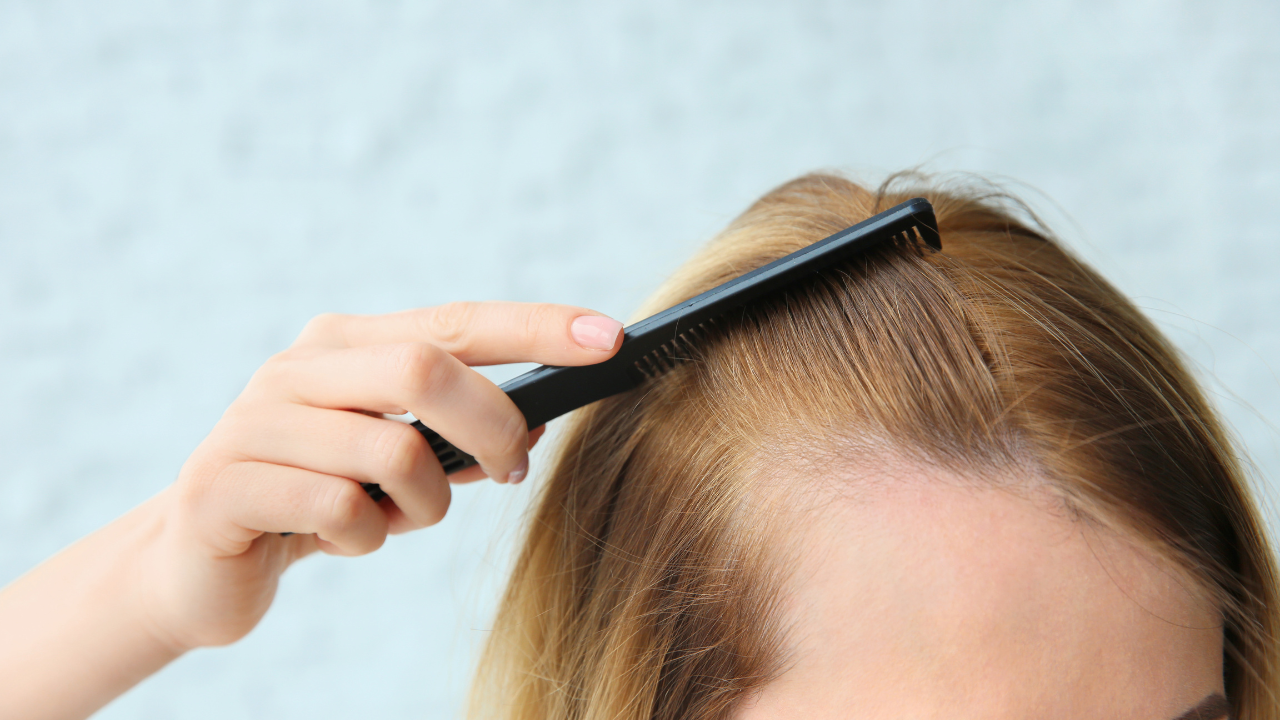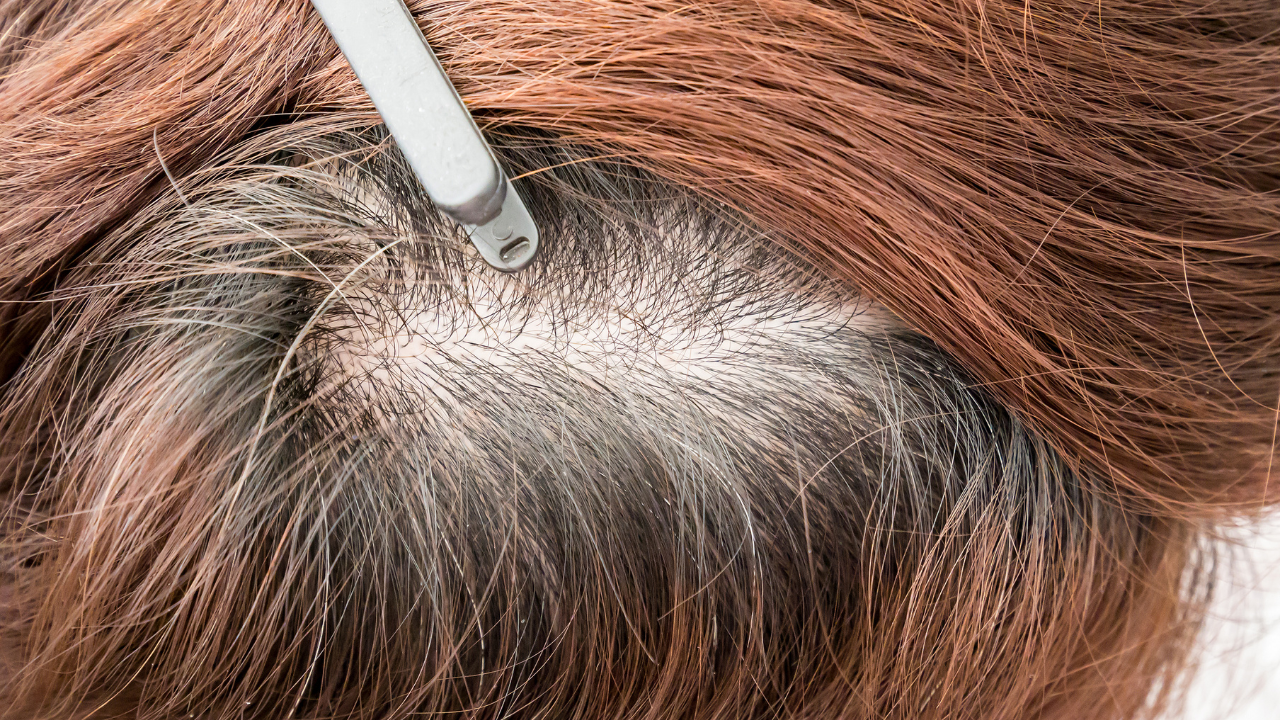Hair Thinning During Menopause
Hair thinning is a common yet frustrating symptom of menopause, often resulting from hormonal shifts that affect hair growth cycles. For many women, the loss of hair volume and texture can feel overwhelming, but effective solutions are available.
At Evolve Telemedicine, we provide personalized treatment options, including Hormone Replacement Therapy (HRT), to help support healthy hair growth and restore confidence.
What Causes Hair Thinning During Menopause?
Hair thinning during menopause is primarily caused by the decline in estrogen and progesterone levels, which play key roles in maintaining hair growth. Lower levels of these hormones can shorten the hair growth phase and delay new hair production.
Key Contributing Factors:
- Hormonal Imbalances: Reduced estrogen levels lead to increased sensitivity to androgens, which can shrink hair follicles.
- Nutritional Deficiencies: Menopause may affect how the body absorbs and utilizes nutrients essential for hair health, such as iron and biotin.
- Stress and Sleep Disturbances: These can exacerbate hormonal imbalances, further impacting hair growth.

How Common Is Hair Thinning During Menopause?
Approximately 40-50% of women experience noticeable hair thinning as they transition through menopause. This symptom often coincides with other menopause-related changes, such as dry skin and mood swings.
Did you Know?
Signs and Challenges of Menopause-Related Hair Thinning
- Noticeable Hair Loss: Increased hair shedding, especially when brushing or washing hair.
- Reduced Hair Volume: Hair feels thinner and less dense overall.
- Changes in Hair Texture: Hair may become finer or more brittle.
- Widening Part: A common sign of diffuse hair thinning.


Tips for Managing Hair Thinning During Menopause
- Focus on Scalp Health: Use gentle shampoos and conditioners to maintain a healthy scalp.
- Optimize Nutrition: Incorporate foods rich in biotin, zinc, and omega-3 fatty acids to support hair health.
- Stay Hydrated: Proper hydration helps maintain hair elasticity and scalp moisture.
- Limit Heat Styling: Minimize the use of hot tools like straighteners and curling irons to prevent further damage.
- Manage Stress: Practice relaxation techniques to reduce cortisol levels, which can affect hair growth.
Can Hormone Replacement Therapy (HRT) Help?
Yes, HRT can be highly effective in managing hair thinning during menopause. By balancing hormonal levels, HRT addresses the root causes of hair thinning and promotes healthier hair growth.
Benefits of HRT for Hair Thinning:
- Stabilizes hormonal fluctuations that affect hair follicles.
- Promotes healthier hair growth cycles.
- Improves overall skin and scalp health.
At Evolve Telemedicine, we offer customized HRT plans tailored to your specific needs, ensuring safe and effective relief from menopause-related symptoms, including hair thinning.

FAQs About Itchiness and Menopause

Declining estrogen and progesterone levels affect hair growth cycles, leading to shorter growth phases and increased shedding.
Yes, a diet rich in nutrients like biotin, zinc, and omega-3 fatty acids can support hair health and growth.
In many cases, addressing hormonal imbalances and optimizing scalp health can improve hair density and texture.
HRT helps stabilize hormonal fluctuations, which can reduce hair thinning and promote healthier growth.
We provide personalized care plans, including HRT and nutritional guidance, to support hair health during menopause.
Take Control of Hair Thinning Today
Hair thinning doesn’t have to be a permanent part of menopause. Evolve Telemedicine offers expert guidance and personalized treatments to help you regain confidence and support healthy hair growth.
